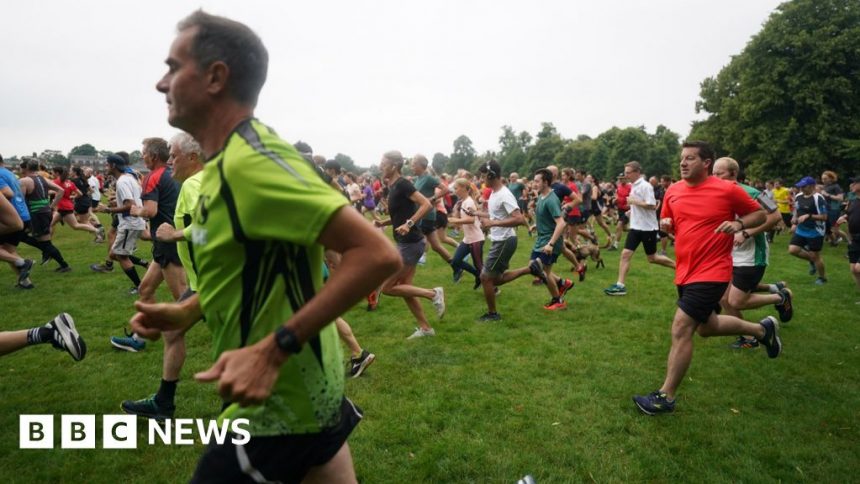Parkrun: The local jog that became a worldwide hit
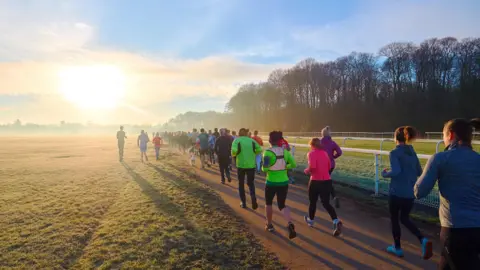 Parkrun
ParkrunWhen a small group of runners gathered on a chilly autumn morning in London 20 years ago, no-one could have realised they were taking part in something that would become an international hit.
Green Day’s album American Idiot had just reached number one, Ben Stiller’s Dodgeball was showing in cinemas and the first series of Strictly Come Dancing had just finished.
Organiser Paul Sinton-Hewitt enticed the pioneering 13 runners to turn up to what was then known as the Bushy Park Time Trial on 2 October 2004 after injury prevented him from taking part himself.
“It really affects people’s lives so that goodness that exists in a park on a Saturday morning extends to the whole week,” he says of an event with millions of weekly participants and volunteers.
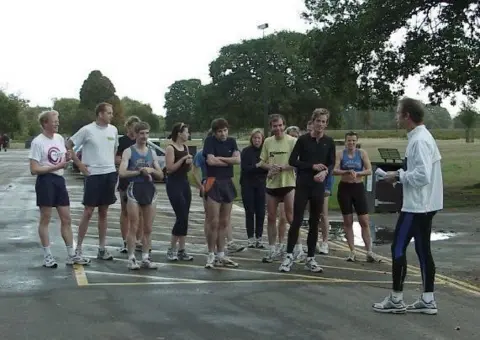 Parkrun
ParkrunFor the uninitiated, Parkrun sees people of all ages and abilities gather in an outdoor space at 09:00 on Saturdays and run for 5km – or just over three miles.
Shorter 2km runs for children aged four to 14 and their families take place on Sunday mornings.
By Christmas of 2004, the numbers had doubled and by the time of the 2012 Olympics the event had expanded to every London borough.
Last month, Lithuania became the latest country to host a Parkrun, taking the overall tally of nations to 23.
Ireland is the most popular place for Parkrun worldwide – where between 8-9% of the population are registered.
In London, where it all began, there are now nearly 750,000 registered parkrunners (including Greater London) and about 100 events each weekend.
Born in Zimbabwe but raised in South Africa, Mr Sinton-Hewitt was given a CBE for services to grass-roots sport participation in 2014.
Now happily living in rural Sussex, he says “you get absorbed by the community, who make you feel special”.
He said: “Almost all the people I know have found that it’s really welcoming.
“It’s non-competitive. You can run it as hard as you like. You can be as competitive as you like but you’re not really competing with other people.
“You’re competing against yourself, and as a result, there’s this pressure is taken away and it’s just fun, right?”
Parkrun: In numbers
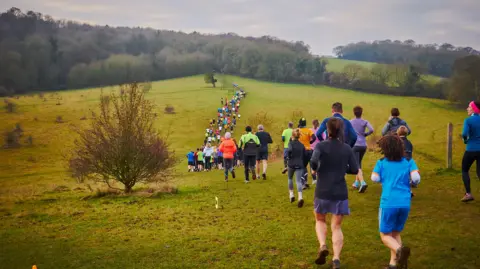 Bruce Li
Bruce Li10,000,000: Registered Parkrunners
900,000: Volunteers
2,500: Parkrun locations
2,000: GP surgeries linked with Parkrun
25: Parkruns in prisons and young offenders institutions
23: Countries where Parkrun takes place
Source: Parkrun
Six years ago, Afe Komolafe was pre-diabetic and started doing Parkrun near her home in Hayes, west London.
The community engagement officer fell in love the weekly event and, after a brief break due to a knee injury, she now accompanies first-timers and even travels abroad with friends made at events for her Parkrun fix.
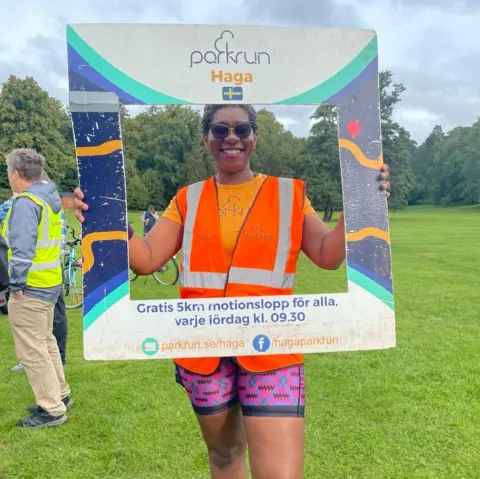 Parkrun
ParkrunShe said: “Parkrun means a whole lot to me. It’s community, friendship, health, well-being, fitness.
“It’s just special. It’s run by volunteers: there are no airs or graces about it.
“I’ve made so many friends through Parkrun.”
Nigel Rata, who has a PhD in atmospheric chemistry, has clocked up more than 200 events and tries to “get a Parkrun in wherever I am”.
The south Londoner describes it as a “family”.
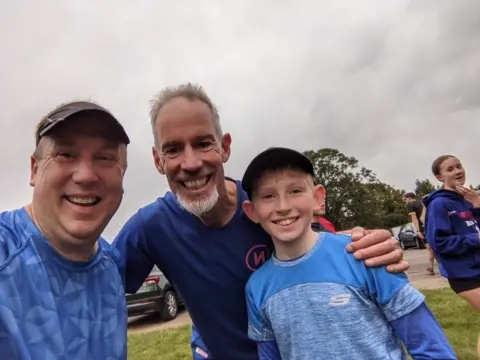 Parkrun
ParkrunHe said: “There’s no expectation of what you do when you get there. There’s no expectation of performance… but fundamentally, it’s there for me.
“You’ll feel great afterwards, no matter how you feel going into it.
“Being with people being in the outdoors and getting fresh air in green spaces just works for me.”
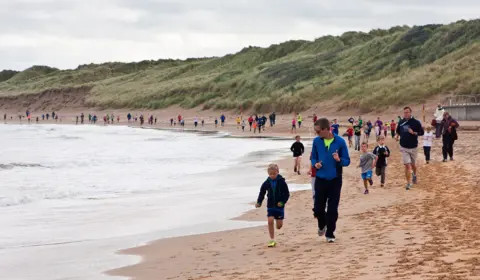 Parkrun
ParkrunFor the man who started it all, arthritis in his left knee means he “can still make my way around the course, but generally it’s walking or I’m back volunteering”.
Mr Sinton-Hewitt said: “It helps me see the joys in life and and sets my my path out for the the rest of the week, so it’s a very important part of my existence.”
Listen to the best of BBC Radio London on Sounds and follow BBC London on Facebook, X and Instagram. Send your story ideas to hello.bbclondon@bbc.co.uk




